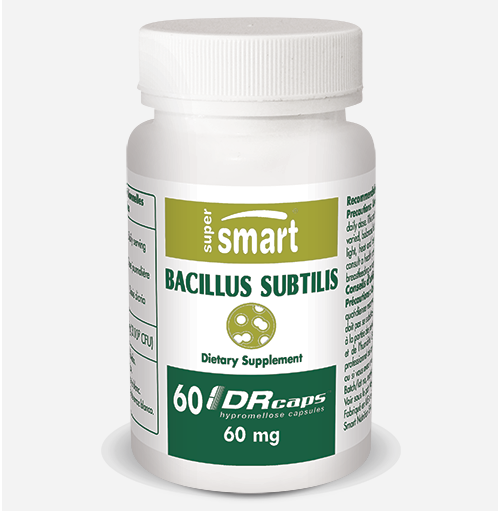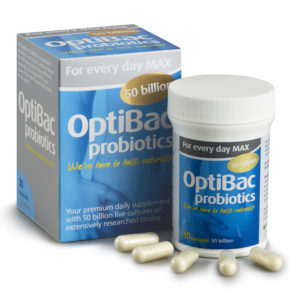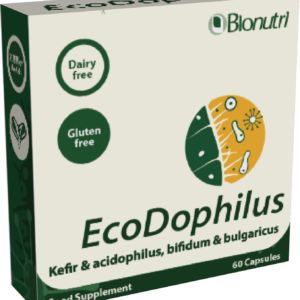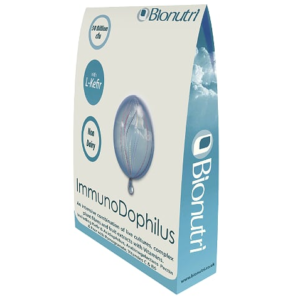Probiotic bacteria strain – Bacillus subtilis
Boost Your Immunity with Bacillus Subtilis – The Tiny Warrior Your Gut Deserves!
Imagine a superhero living in your gut, fighting off infections, powering up your defences, and keeping nasty bacteria and fungi at bay. Meet Bacillus subtilis – the clinically tested, patented probiotic strain taking immunity to the next level. This isn’t your average probiotic – it’s a spore-forming, heat-resistant, acid-defying badass ready to transform your health, especially when winter hits.
Why Bacillus Subtilis Is Going Viral (And Why You Should Care)
- Immunity on Fire: Studies scream it clearly – this strain supercharges your natural defences. Older adults, listen up: preclinical and clinical trials prove Bacillus subtilis slashes winter infections like a boss.
- Infection Fighter: Anti-bacterial? Check. Anti-fungal? Double check. It stomps out pathogenic bacteria growth, keeping your gut a no-drama zone.
- Gut Survivor: This probiotic is insanely resistant to stomach acid. It doesn’t just survive the trip—it thrives, landing right where your microflora needs it most.
- Science-Backed Hype: A double-blind trial with 44 seniors (60+) showed jaw-dropping results. Just 20mg, 10 days a month for 4 months, and BOOM – IgA levels (your immunity’s VIP antibody) spiked in saliva and stools. Infectious days? Down by 38%. Fewer sick days? Yes, please!
The Spore Secret: Why It’s Better Than the Rest
Unlike wimpy probiotics, Bacillus subtilis forms spores – tiny, heat-proof shields that laugh in the face of harsh conditions. That means:
- Max Power in Your Gut: It cruises through your digestive tract like a champ, delivering results where it counts.
- Shelf-Stable Superstar: No fridge needed – DRcaps™ keeps it stable at room temperature.
- Lab-Proven, Life-Changing: In vitro, in vivo, and French clinical trials confirm that a GI tract survivor activates IgA-producing cells like nobody’s business.
Winter’s Coming – Are You Ready?
Older adults, this one’s for you. As immune systems take a hit with age, Bacillus subtilis swoops in to save the day. Pair it with immunity MVPs like vitamins D3, C, and zinc, and you’ve got a powerhouse combo that screams, “Bring it on, winter!”
The Viral Verdict: Take It, Share It, Love It
This isn’t just a probiotic bacteria – it’s a game-changer. With rock-solid science, a knack for crushing infections, and a survival rate that’d make Bear Grylls jealous, Bacillus subtilis is the gut hero you didn’t know you needed. Stock up, spread the word, and let this tiny titan keep you thriving year-round.
Pro Tip: Start now – your immune system will thank you later. Who’s jumping on the Bacillus subtilis train with me? 🚂💪
Be the first to review “Probiotic bacteria strain – Bacillus subtilis”
Composition of probiotic Bacillus subtilis
| Daily dose: 1 capsule. Number of doses per pack: 60 | Amount per dose |
| LifeinU™ Bacillus subtilis CU1 | 60 mg (3.109CFU) |
| Other ingredients Acacia gum, white rice bran. Probisis®, Lesaffre, France. |
Directions for use
Adults. Take one capsule a day. Keep refrigerated.Are you looking for the best vitamin and food supplement supplier online?
Get a £20 rebate using the prescriber code “anatolis1“ under “Optional Code” when you make your first purchase of £100 or more from the leading European brand “SuperSmart“.Researchers initially found Bacillus subtilis and Bacillus licheniformis in the soil in Siberia's ecologically clean region. Then, they derived the new strains by modifying them with plasmid pBMB 105, which can produce interferon 2-alpha-leukocytes in humans.
Activities
Being a factor of nonspecific resistance of the body, it plays a controlling and regulatory role in maintaining homeostasis in the human body and has the following main activities:
- antiviral effect;
- suppresses the growth and development of intracellular infectious agents of a non-viral nature (chlamydia, rickettsia, bacteria, protozoa);
- antiproliferative activity;
- antitumorigenic and antimutagenic effects;
- antitoxic action;
- radioprotective effect;
- stimulates macrophages and enhances phagocytosis;
- enhances the cytotoxic effect of sensitised lymphocytes on target cells;
- increases the formation of surface antigens;
- enhances or inhibits the activity of many cellular enzymes;
- enhances the cytotoxic effect of double-stranded RNA
- suppresses or enhances the production of antibodies;
- activates natural killer cells;
- stimulates the release of histamine by basophils;
- increases the synthesis of prostaglandins;
- enhances the formation of histocompatibility antigens;
- suppresses delayed-type hypersensitivity.
Bacillus subtilis and Bacillus licheniformis bacteria as constituents of healthy microflora
To clarify, Bacillus subtilis bacteria and Bacillus licheniformis are not normal flora in microbial communities of humans and animals. In other words, they possess properties that enable the body to maintain microbicides at ecologically natural levels. Those properties optimise metabolism. They also supply the organism with biologically active and building substances, ensuring qualitative digestion of food. These species of bacteria come from the environment and enter the gastrointestinal tract (GIT) and the skin in physical conditions. Currently, more than 3000 species of these bacteria are known.
Bacteria Bacillus subtilis and Bacillus licheniformis live in the digestive tract after entering for no more than 30 days, and after that, they leave the body naturally. This species of bacteria does not die in the stomach because it is highly resistant to gastric juice's effects in spore form.
Effect
They transform into vegetative forms in the mouth and the small and large parts of the intestine. These bacteria also multiply there and produce biologically active substances in the environment. They also affect the growth and development of putrefactive, pathogenic, opportunistic microflora, such as E. coli. Moreover, other microorganisms restore the normal functioning of the microflora of the gastrointestinal tract.
The ability to suppress the growth and development of the microflora of the above types of bacteria is mainly due to the production of polyene antibiotics like bacitracin and licheniformins. These antibiotics also indirectly optimise the functioning of the human and animal immune systems.
Irrigation of the intestine in our London clinic helps normalise the colon's microflora. In doing that, we also prepare the best environment for probiotics. It may also help restore the body's immune system properties.







Reviews
There are no reviews yet.